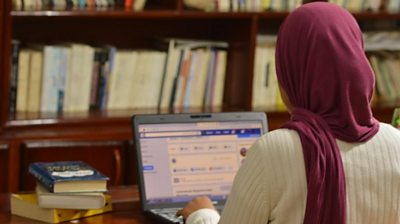Downloads
Research summary
Published: October 2021
To assess the impact of ΒιΆΉΤΌΕΔ Media Action's long running El Kul project, we conducted a panel study with some of its audience members. Findings from the mixed method study showed that El Kul is seen as an impartial, timely, relevant and trusted source of information in Libya. They also said it supports womenβs empowerment however the research suggests negative gender norms are highly entrenched and more work on this area is needed.
The context
Libyan media is highly partisan and polarised, with most outlets producing content that favours particular political or military factions. There are few independent public interest media organisations within Libya, with many pressed into serving the interests of various warring factions. Censorship, intimidation and violence against journalists are common.
The project
ΒιΆΉΤΌΕΔ Media Actionβs El Kul project and social media platform has been running since 2014. It has trained a team of Libyan journalists and content producers in journalism and production skills, and they provide El Kulβs over 1 million followers with an impartial and unbiased source of news and information in Libya.
El Kulβs content aims to support social cohesion in Libya by providing accurate, memorable stories that represent Libya in all its diversity; promoting the voices of marginalised groups such as women and ethnic minorities; highlighting the human cost of conflict; emphasising the type of experiences, challenges and aspirations that connect young Libyans; and providing them with a safe space to discuss issues of importance to their lives.
El Kul represents all categories, groups and people, as it includes everyone without exception and without prejudice. It represents Libyans, particularly women, and sometimes migrants and minorities in Libya. I do not think there are any groups that are not represented. The pageβs content is neutral.β
Research methodology
To assess the impact of El Kul on its audiences, ΒιΆΉΤΌΕΔ Media Action tracked a cohort of male and female El Kul followers, aged 18-34,at two time points in March 2020 (698 panel members) and March 2021 (437 panel members). The research collected both qualitative (using in-depth interviews) and quantitative (using a telephone survey) data from panel members.
Key findings
- El Kul is seen as an impartial, timely, relevant and trusted source of information in Libya: the vast majority of the survey respondents (over 90%) agreed or strongly agreed that El Kul is informative and provides balanced and trustworthy content. There was a 7% increase in the proportion of respondents who strongly agreed with each of these statements between March 2020 and March 2021.
- El Kul helps to promote social cohesion and acceptance of diversity: 93% agreed or strongly agreed that El Kul represents Libyan society in its diversity, and 45% could recall examples of El Kul content demonstrating Libyans taking actions that contribute towards peace and reconciliation. They mentioned for instance recalling content showing individuals taking part in reconciliation or peace initiatives at the local/ community level or doing acts of solidarity between different regions or groups. Participants also reported that El Kul content prompted interest in understanding more about different ethnic groups and regions in Libya.
- El Kul supports womenβs empowerment: Participants said that El Kul publishes useful content on womenβs rights, issues and experiences. They said this made them think differently about the role of women in society and the violence and discrimination they experience. Two-fifths (42%) of survey respondents reported speaking in support of womenβs empowerment/equality, and 26% of these said that they were strongly encouraged to do so by El Kul.
I have become more accepting of others than before, through El Kul pageβ¦we have come to accept the presence of other cultures in the same country.β
Implications
The research shows that El Kul continues to be a valued and trusted source of impartial and timely information in Libya. Audience engagement is driven by the high quality of the content production, its accuracy and its relevance to diverse Libyan audiences. These factors help drive interest and trust in El Kulβs content, and mean that it stands-out from other available media.
This audience engagement enables El Kul to tackle difficult issues in Libyan society, such as social cohesion, conflict prevention and womenβs empowerment. Recall of this kind of content is high, and the evaluation suggests that El Kul has successfully prompted greater interest in, and discussion about, diversity and equality in Libya. It has also encouraged audiences to think more positively about the role of young people in reconciliation process.
While El Kul content has encouraged audiences to reflect on womenβs place in Libyan society, the research suggests negative gender norms are highly entrenched, for instance with regards to gender equality and the role women play in society. More work on this area is needed.
